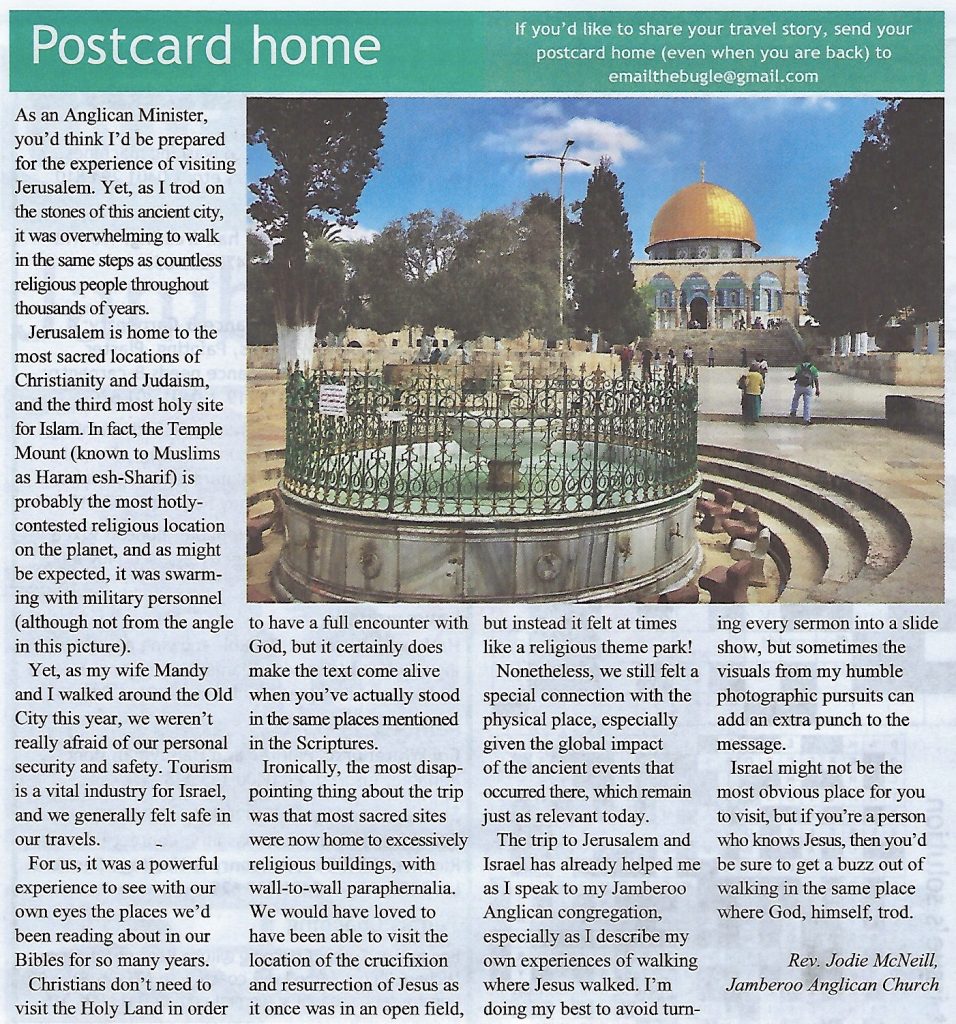The PM’s gap year push for the Australian Defense Force is a good idea. Read an article on my view at your.sydneyanglicans.net and see my media release from earlier today:
ANGLICAN CHURCH, DIOCESE OF SYDNEY
MEDIA RELEASE – FROM ANGLICAN YOUTHWORKS
9th August, 2007
Gap year is good policy from the PM, says Anglican Youth Leader
“It would be easy to cynically dismiss the Prime Minister’s push for defence force gap year recruits as a quick fix for dwindling numbers of ADF staff. However, Howard has rightly identified the benefits of taking a ‘year off’ to help school-leavers make wise decisions about their future,†said Jodie McNeill, Director of Anglican Youthworks Year 13 Gap Year.
“For the student, it offers a break from thirteen years of study. It provides an opportunity to carefully consider the appropriate career choices, and to make sure that students make wise decisions about tertiary and vocational training,†he said “Too many people waste their time and money commencing unsuitable courses.
“This also puts an unnecessary stress on our universities and colleges. When students pull out of courses mid-year, they rob others of the opportunity to learn, and deprive the institutions of much-needed income.
“It also places a drain upon the taxpayer. Many of these drop-outs inevitably require income support, especially due to their lack of vocational or higher educational training. Inevitably they tread water for six months, awaiting the beginning of college or university in the following year.
“More positively, when a school-leaver spends a year learning about their own strengths and weaknesses, and evaluating their vocational preferences, it helps them to begin the next year’s study with greater motivation. They study a course they want to complete, not just the course for which they earned enough marks.
“What’s more, they can take the opportunity to travel overseas, and to see how they fit into the world. There is no better way to discover the wealth of Australia than to experience the poverty of other nations.
“Our team of 26 students in the Year 13 Gospel Gap Year has just returned from Kenya, Africa. Their month-long trip has taught them lessons they would never learn in a classroom, and given them insights they could never get from the Discovery Channel.
“Yet, apart from the self-awareness benefits, a gap year allows school leavers to give something back to others. Whether it’s caring for AIDS patients in a slum in Nairobi, or caring for kids in a disability camp in Sydney, a gap year gives an opportunity to serve others. In our Year 13 program, we also teach life-skills such as first-aid, defensive driving and vocational guidance, as well as theology.
“Recruiting people into the ADF through the gap-year front-door is good policy. It allows potential defence force personnel to make sure they are suited to this specialised work by getting a real view of the military world without a long-term commitment. But, it also gives these school-leavers an opportunity to serve—something we need more of in our increasingly materialistic society.â€
CONTACT :        Jodie McNeill                0425 222 338
(Jodie McNeill is Director of the Anglican Youthworks Year 13 Gospel Gap Year)


